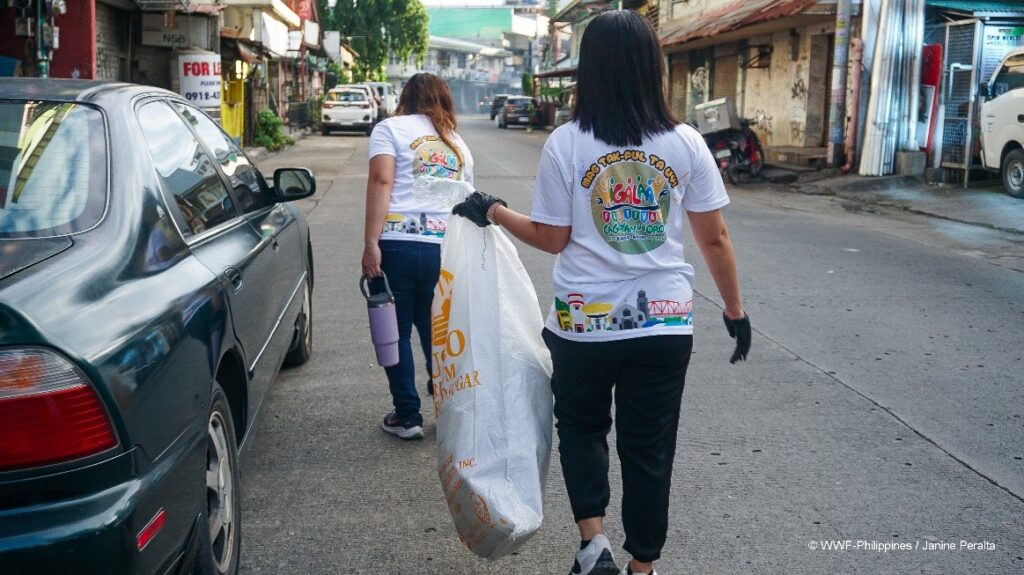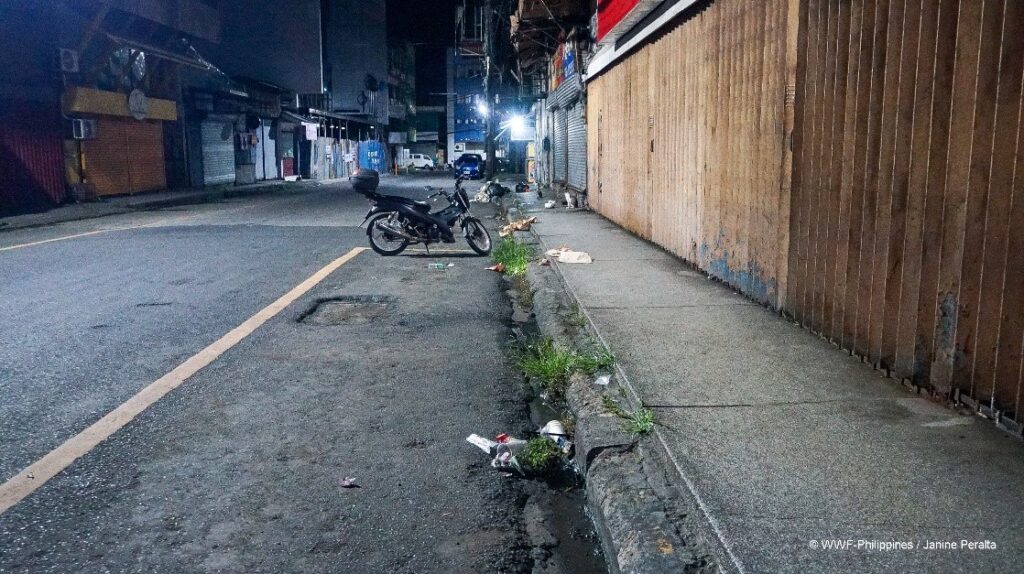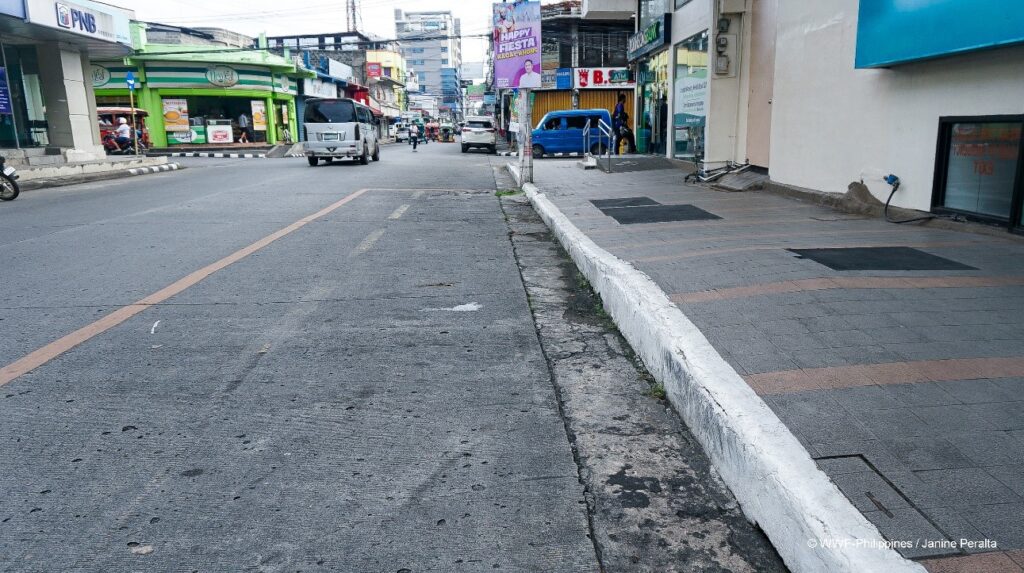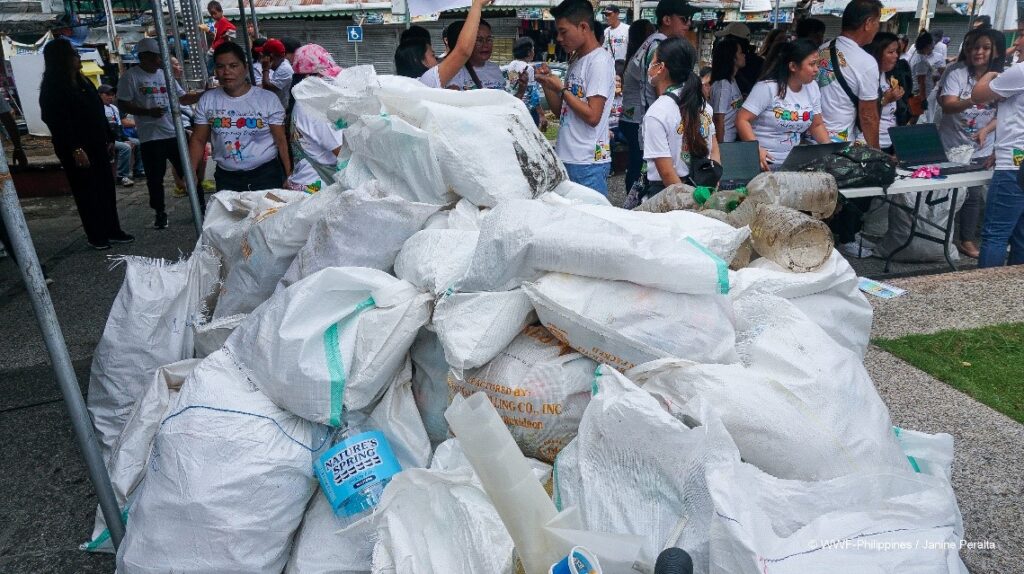The Cagayan de Oro City government adopted WWF-Philippines’ “Takpul” event — which combines the words “takbo” and “pulot” — to cap off their month-long Higalaay Festival or Festival of Friendship. Takpul is the local version of plogging that started in Sweden, merging the two words jogging and plocka upp, the Swedish word for “pick up”. WWF-Philippines first launched takpul ahead of its 2024 Earth Hour celebration, tapping on students in Manila City.

On the last day of the Higalaay Festival (30 August), over 560 volunteers in Cagayan de Oro City took part in the early morning takpul. Participants from the local government, academia, faith-based groups, non-government organizations and other sectors were divided into four groups with their own routes, covering 2.4 kilometers each. They were each assigned a type of waste to collect such as plastics such as PET bottles or residual waste.
“Ginawa natin sa Higalaay Festival ‘yung Takpul para sa awareness ng mga tao [We did the Takpul at the Higalaay Festival to raise public awareness],” said August Paul Bacarrisas, staff member of the Cagayan de Oro City Local Environment and Natural Resources Office who organized the takpul event.
“We incorporated the takpul into our Higalaay Festival to raise awareness. We cater, implement, and replicate down to the barangay-level opportunities to help the environment to raise awareness on the importance of solid waste management, especially on avoidance on production of waste.”


The participants collected a total of 623.92 kilograms of waste at the end of the one-hour run, of which 57% were plastic and 43% were residual.
WWF-Philippines hopes that more cities and communities will continue to implement educational programmes such as takpul in order to engage their communities to ensure that no waste will leak into the environment.
“It is important that the Local Government Unit demonstrated to every member of the community that they too can take the initiative to clean their surroundings — because we are all affected by what happens to our environment, and we can all take action to protect it” said Jose Ricky Biyo, Project Manager of WWF-Philippines’ Marine Litter Project which worked with the CDO LGU on the event.

In Lapasan, a barangay-level Solid Waste Management (SWM) plan has been developed to align with the LGU’s SWM plan. The barangay plan aims to strengthen hyper-local actions that can help improve separation, collection and management of solid waste, with potential to replicate and scale to more barangays.
As Cagayan de Oro continues to work in partnership with Plastic Smart Cities, plans are ongoing to improve SWM by organising the informal waste sector and strengthening entrepreneurial capacities of identified cooperatives and organisations that can provide sustainable solutions to waste collection, recycling and reduction.
This project is supported by Plastic Smart Cities and implemented under the Circular Operations for Plastic Pollution-Free Environment (COPE), IKOT (Interventions to Keep our Oceans Trash-free) and Marine Litter Project.


